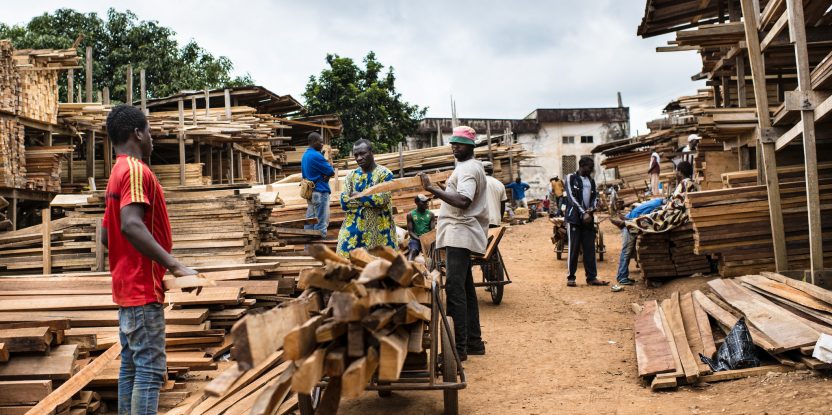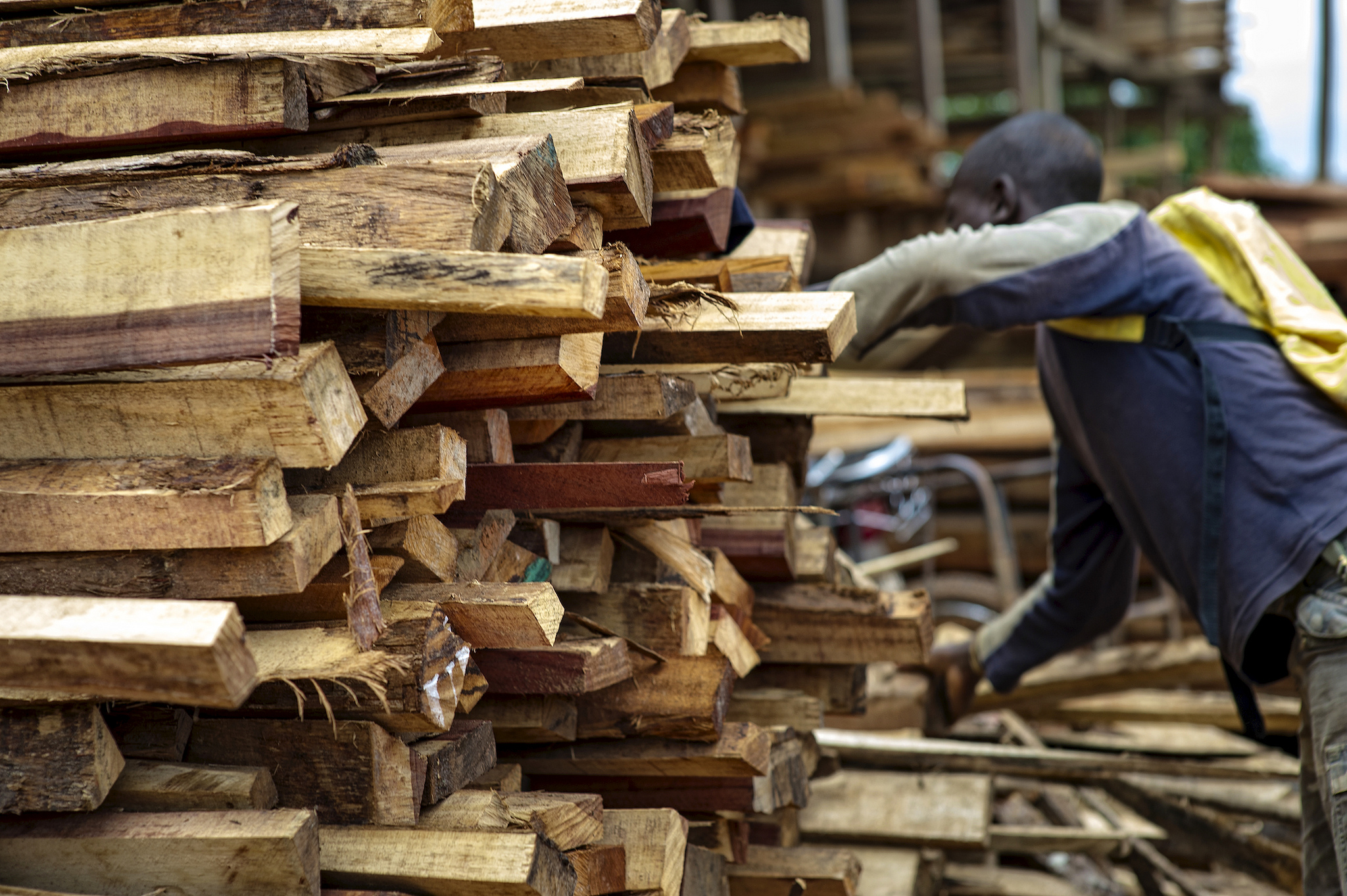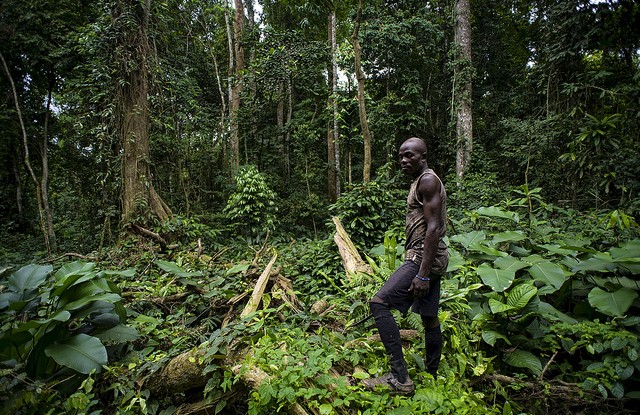
Cameroonians are still not very interested in knowing the origin of the wood they buy, but a growing number of consumers are looking for legal and sustainable products. This is the main conclusion of a recent study I conducted with other scientists from the Center for International Forestry Research (CIFOR) and partners, which explores the domestic timber market in Cameroon.
AN UNEXPLORED OPPORTUNITY
There are many organizations currently working on the sustainability and legality of tropical products. Some prefer approaches that promote implementing legal instruments and public policies, such as the Voluntary Partnership Agreements of the European Union’s FLEGT Action Plan. Others opt to work on private sector initiatives supporting sustainable production, such as company commitments to protect forests.
However, the common thread is that all initiatives target timber demands from developed countries. This trend is based on the fallacious assumption that consumers from developing countries make their choices based only on price, and do not care about the legality or sustainability of products.
Scientific literature unfortunately has the same bias. Very few articles have analyzed developing countries’ consumer concerns about legality and sustainability. However, it’s in the developing world that the battle for timber legality and sustainability will take place in the following years.
BETTER UNDERSTANDING OF LOCAL MARKETS
In light of this, CIFOR and its partners decided to study the domestic timber markets in the Congo Basin region. Our research shows that the local trade is highly informal, and therefore able to supply materials cheaply to buyers in the main cities.
In Cameroon, we found that products of supposedly legal origin (directly and indirectly from industrial sawmills) only represent between 12 and 18% of the total volume sold in urban markets, mainly due to lack of demand.
Similarly, we found that until now, no national or international public institution mandates that in tender processes, all timber purchases be legal. “In the absence of demand, it is difficult to convince sellers to offer legal products. For them, the cost of production and thus the final price of legal products would be higher”, says Raphaël Tsanga, CIFOR Scientist.
This situation could change, however. The study also shows that in the medium term, rising incomes of consumers and changes in the price of timber could influence choices and encourage demand for products of legal or sustainable origin.
CHANGING CONSUMPTION HABITS
In our work, we calculated what economists call price elasticity and income elasticity of demand. This simply means that we observed how consumer demand would change if timber prices or their incomes increased. The responses obtained from a survey of 440 buyers open up new perspectives for promoting legality in domestic timber markets in Cameroon.
First of all, this shows that not all consumers are insensitive to the origin of the wood they buy. Half of the buyers surveyed said that they would agree to pay 10% more to buy legal timber. “For these consumers, there is a link between the legality and the quality of products: buying legal wood means dealing with professional salesmen or carpenters, who attach importance to the quality of their products,” says Tsanga.
Apart from the acceptance to pay more for legal wood, urban buyers also showed a preference for timber over other materials. They said they could accept a 45% increase in prices before substituting wood with alternative products like aluminum, iron or plastic. This estimate varies for each product and species, but it indicates that most consumers could pay a higher price if linked to the legalization and formalization of the sector.
Finally, between 15 and 34% of customers said that they would start buying legal timber if their income increased between 20 and 100% in the next five years.
The economic growth expected in the medium and long term in Cameroon should therefore create more high-income consumers willing to buy products that are legal and, more generally, of better quality.
FROM RESEARCH TO ACTION
So, what can Cameroon do to accelerate these trends and promote the increase of demand for legal wood? We suggest three actions.
First of all, public bodies should adopt public procurement policies that mandate sourcing of legal timber. The Ministry of Forests and Wildlife is already working on this strategy.
Second, enterprises in the public works sector, which are important timber buyers, need to be more aware of the importance of sourcing legal timber. This should become part of their corporate social responsibility and environmental strategies.
Third, it’s necessary to conduct public campaigns to raise awareness among consumers and convince them to buy products made of legal wood.
These three actions are the pillars of the Public and Private Demand for Sawn Timber of Legal Origin in Cameroon (ESSOR) project, which is currently being implemented in Cameroon.
We want you to share Forests News content, which is licensed under Creative Commons Attribution-NonCommercial-ShareAlike 4.0 International (CC BY-NC-SA 4.0). This means you are free to redistribute our material for non-commercial purposes. All we ask is that you give Forests News appropriate credit and link to the original Forests News content, indicate if changes were made, and distribute your contributions under the same Creative Commons license. You must notify Forests News if you repost, reprint or reuse our materials by contacting forestsnews@cifor-icraf.org.

